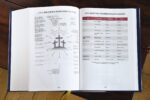Worry – A Thief that Causes Paralysis of Faith

“Therefore I tell you, do not worry about your life, what you will eat or drink; or about your body, what you will wear. Is not life more than food, and the body more than clothes?” – Matthew 6:25 NIV
Worry is a choice that displeases God. When you worry, you reveal that you don’t really trust God to provide all that you need. – June Hunt
Depending on context, words translated as “cares” and “concerns” or “fear” and “anxiety” can be either right or wrong attitudes in a Christian’s life. Fear is right when it is reverence toward God because of his holiness (Isa 8:13), and care is good when showing concern for others (1Co 12:25; 2Co 11:28). But worry is always wrong, for it paralyzes active faith in your life. When you worry, you assume responsibility for things you were never intended to handle. Jesus repeatedly taught, “Do not worry” (Gk. merimneo, lit. “to divide the mind”), even about the basic essentials of life (Mt 6:25–34). Worry divides your mind between useful and hurtful thinking. Worrying does not change anything (Mt 6:27) except to draw your focus away from God and his faithfulness and righteousness to concerns about the things of life, such as possessions and material goods (Mt 6:31). Worry is a choking, harmful emotion that saps your energy and elevates human strength and ingenuity above God’s strength and his purposeful plan. Sources of worry include change, lack of understanding and lack of control over your life. Worry opens the door to worldliness, that is, preoccupation with the things of this life. Though the children of Israel had watched God split open the Red Sea to deliver them from Egypt, they could not believe he would provide water in the desert to meet their needs. Worry is the opposite of faith, suggesting that God cannot be trusted to take care of you or to provide what you need (Php 4:19). Worry causes fear to crowd out faith. Thus, in the final reckoning, “the cowardly” are listed alongside the “unbelieving” (Rev 21:8). Linking worry with unbelief, Scripture gives direction for a return to full faith. The road from worry to faith begins with recognition that worry is sin and confession of lack of faith (Ps 139:23), continues with deliverance (Ps 34:4), and finally ends with the assurance that absolutely nothing can separate you from the love of God who is the great I am (Ro 8:35; Ex 3:14–15). In place of anxious thoughts, you then freely offer thanksgiving from a heart established with trust in God as all sufficient (Ps 112:7–8; Php 4:6–7).
What worry or fear are you surrendering to the Lord today?



















